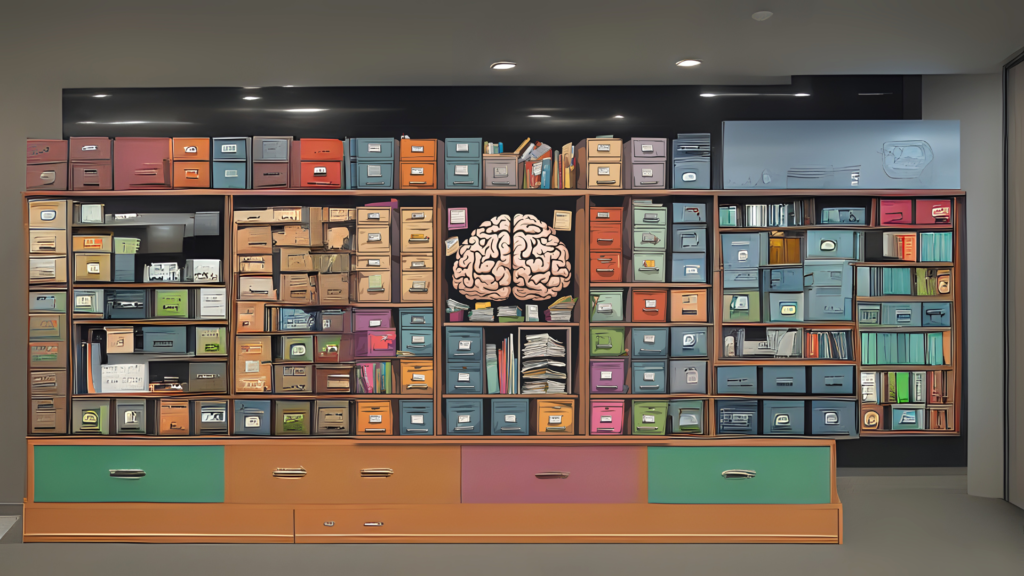Table of Contents
Abstract
Despite extensive exploration over many years, the human brain continues to be a mysterious area of study for science. This article delves into the main obstacles that have hindered a complete understanding of the brain, honing in on its incredible complexity, the constraints of current research methods, and the philosophical quandaries surrounding consciousness. Through an examination of these factors, we shed light on why the most profound mysteries of the brain still elude scientific deciphering.
Introduction
Emily Dickinson once declared that the brain surpasses even the vast expanse of the sky, emphasizing its boundless capacity. However, despite being central to our sense of self, this enigmatic organ continues to defy complete scientific understanding. Although various fields such as neuroscience, psychology, and computational models have uncovered some aspects of its operation, the essential processes responsible for thought, memory, and consciousness remain elusive. In this article, we explore the challenges faced by science in unraveling the mysteries of the brain.
The Complexity of the Brain
With an astounding 86 billion neurons, the human brain is a complex web of connections that lead to trillions of interactions. This level of sophistication surpasses even the most advanced computational systems. Each neuron can be likened to a node in a multi-dimensional network, where inputs and outputs constantly change.
mageThe brain’s adaptability poses a challenge to scientific comprehension. Known as neuroplasticity, its ability to rewire itself in reaction to injury or experience contradicts the rigid models commonly employed in biological sciences. As Dr. David Eagleman highlights in The Brain: The Story of You, the brain’s wiring is not fixed; rather, it is a dynamic structure that adjusts according to external stimuli. This flexibility, while essential for survival, introduces unpredictable elements that cannot be standardized.

Limitations of Methodologies
Contemporary neuroscience heavily depends on imaging methods such as fMRI and PET scans, which offer invaluable insights into brain function. However, their abilities are restricted in terms of resolution and coverage. Instead of directly capturing all electrical and chemical signals, they detect blood flow or metabolic changes, indirect indicators of neuronal activity. Consequently, crucial processes often occur beyond the capabilities of existing instruments.
One major restriction of using animal models in neuroscience is their difficulty in being applied to human cognition. Although they have yielded important discoveries, the process of translating these findings to the human brain is complicated by differences between species. In his well-known quote from Cosmos, Carl Sagan humorously stated the extensive effort required to truly comprehend something seemingly simple like an apple pie. In a similar vein, comprehending the complexity of the human brain means reconstructing evolutionary and environmental circumstances that are vastly different from laboratory settings.
The Philosophical Conundrum of Consciousness
The enigma of consciousness, at the core of human experience, remains one of our most confounding mysteries. Its essence is shaped by our subjective awareness and defies any objective quantification. Scholars such as David Chalmers have dubbed it “the hard problem,” highlighting its inability to be reduced to physical explanations.
Although neuroscience has located areas of the brain linked to consciousness, such as the prefrontal cortex and default mode network, it fails to clarify how electrical activity gives rise to our individual perception. As Morpheus muses in The Matrix, the question remains: what is truly real? This challenge illustrates the philosophical roadblock science encounters when trying to understand subjective experience through objective measures.
Ethical and Practical Barriers
The ethical implications of brain science also limit its progress. Methods such as invasive studies or extensive experimentation on humans, which could offer valuable insights, are restricted by moral boundaries. While these safeguards are necessary, they do restrict the range of possible research.
Moreover, the practical aspects of funding and interdisciplinary collaboration present significant obstacles. Conducting brain research necessitates the merging of various fields such as biology, physics, engineering, psychology, and computer science. However, these disciplines often function independently, leading to delays in major discoveries and hindering the creation of comprehensive models.
Lessons from Literature and Culture
Cultural narratives often delve into the enigma of the brain, both captivating and vexing us. In Mary Shelley’s Frankenstein, Victor Frankenstein’s pursuit of unlocking the secrets of existence leads to unforeseen repercussions, mirroring the arrogance of ambitious science. Likewise, movies such as Inception and Eternal Sunshine of the Spotless Mind explore concepts of recollection and selfhood, highlighting our limited comprehension of these concepts.
These narratives serve as a reminder that despite all the advancements in science, it may never truly comprehend the personal and existential aspects of the human psyche.
Conclusion
The inability to fully decipher the secrets of the brain does not reflect a lack of scientific capability, but rather the immense and intricate nature of the task at hand. The ever-changing dynamics of the brain, limitations in research methods, and the enigmatic concept of consciousness all contribute to a frontier that may never be completely conquered. As we push on in our exploration of this final frontier, it is crucial to approach it with both humility and an open-mindedness towards interdisciplinary approaches.
“Man is not a machine,” as Isaac Asimov noted in I, Robot. Understanding the brain requires recognizing it as both a biological organ and a vessel of human spirit. In the pursuit of knowledge, this duality will shape the future of brain science.



